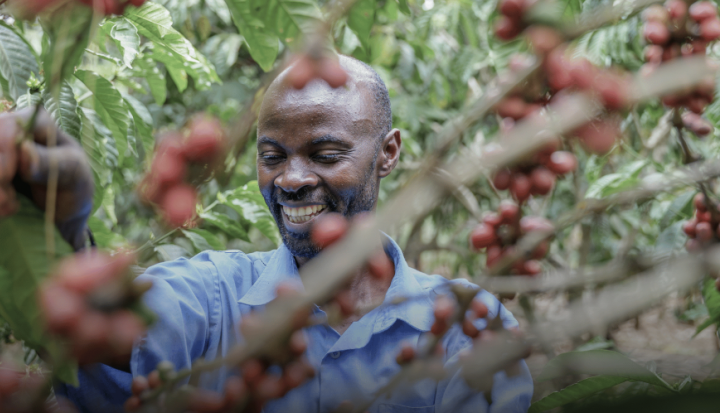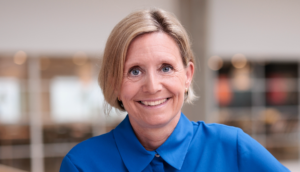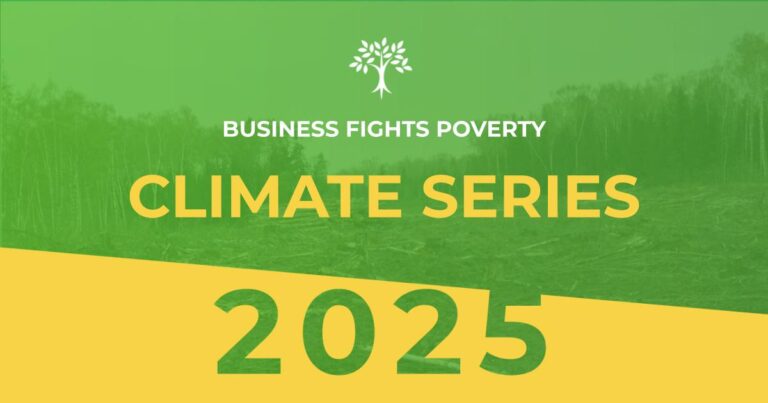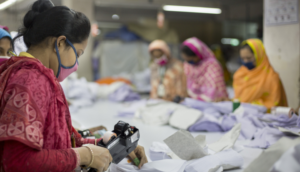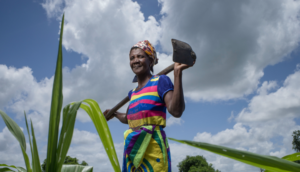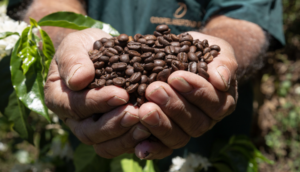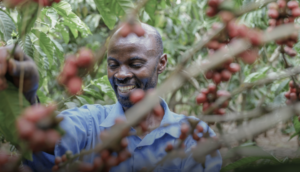As the effects of climate change intensify, farmers across East Africa continue to face unpredictable weather, falling yields, and growing uncertainty. For smallholder producers, the challenge is not abstract – it is daily and deeply personal. At Shared Interest, we believe that climate action must begin with people. By providing fair finance and supporting practical, community-led adaptation, we help farming co-operatives and small businesses strengthen their resilience from the ground up.
Our approach is based on partnership. Shared Interest connects investment from individuals across the UK with fair trade enterprises in disadvantaged regions around the world. For producers in East Africa, this means access to affordable credit and working capital – the finance needed to fulfil contracts, invest in new infrastructure, and respond to environmental pressures without falling into debt. Through Shared Interest Foundation, we also provide training that helps producers understand and adapt to climate risks, ensuring that financial support is matched by knowledge and long-term capacity.
In Kenya, we work with Garden Fresh, a Fairtrade-certified exporter of fresh vegetables. The company sources from hundreds of smallholder farmers, the majority of whom are women. Climate change has brought new challenges to the region, including prolonged droughts and sudden heavy rainfall that damages crops and infrastructure. Immaculate Ochieno, Sustainability Manager at Garden Fresh, explained: “In the past, we could predict the seasons. Now it is more difficult to plan. Our farmers are facing increased costs, and we are seeing new pests and diseases that we did not have before.”
With support from Shared Interest, Garden Fresh has been able to implement climate-smart farming techniques, including integrated pest management, improved water systems, and soil conservation. The company also provides training in sustainable practices, helping farmers diversify crops and stabilise their incomes. These efforts not only improve yields but also strengthen the farmers’ ability to adapt – ensuring that environmental progress is matched by social and economic inclusion.
Across the border in Uganda, Banyankole Coffee Services Ltd (BCSL) works with over 12,000 smallholder coffee farmers who are facing similar challenges. Through finance and training provided by Shared Interest Foundation, the organisation has launched community-led initiatives such as tree planting, composting, and beekeeping. These activities help reduce soil erosion, improve biodiversity, and generate additional sources of income.
BCSL’s Managing Director, David Nuwagaba, said: “We are seeing the impact of climate change every day – lower yields, unpredictable rains, and pests like the coffee berry disease. But we also see farmers adapting. They are planting shade trees, using organic fertiliser, and exploring new products such as honey. Shared Interest has helped us to take this work further and reach more people.”
These examples illustrate how climate resilience depends not only on technology or infrastructure but on inclusion – giving producers the tools, finance, and knowledge to lead their own solutions. Shared Interest’s experience shows that when communities are empowered to respond to climate threats in ways that reflect their realities, progress becomes both more effective and more sustainable.
As global attention turns to climate targets, our work continues to demonstrate that investment in people is the most powerful form of climate action. By bridging the gap between ethical investors and producer communities, Shared Interest ensures that those most affected by climate change are equipped to shape their own future.
In 2025, as weather extremes continue to test global food systems, the need for people-centred finance has never been greater. Climate change is not only an environmental issue – it is a human one. At Shared Interest, we will continue to stand alongside the producers who feed, supply, and sustain us, ensuring they have the resources and resilience to thrive in a changing world.
More on Shared Interest and how to help support producers building resilience to climate change
This article is part of the Business Fights Poverty Climate Series with Fundação Dom Cabral (FDC) taking place during COP30 Climate Summit in Belém, Brazil.
